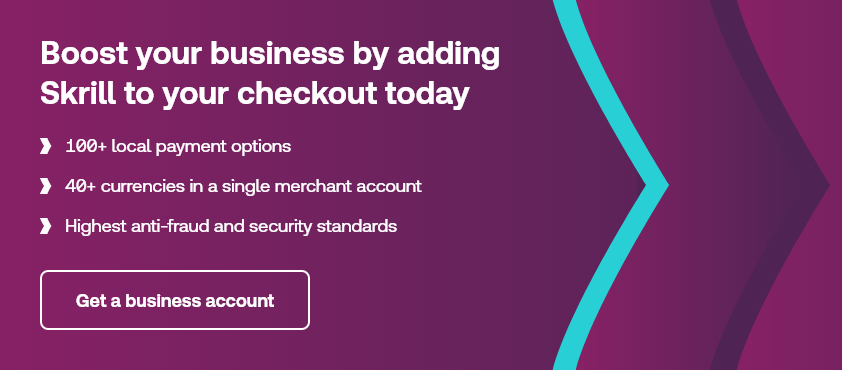The foreign exchange market (forex market) is the largest financial market globally, reaching up to $6.6 trillion in trading per day . As the global marketplace for currency exchange, this market is used by commercial, investment banks, and central banks, multinational corporations, hedge funds, investment managers, as well as individual traders.
Forex trading platforms, or merchants, enable individuals to participate in the market and conduct trades. To do so, platforms need to have a forex payment gateway that allows them to make rapid transactions. But finding a payment gateway that offers forex merchant accounts is often challenging for several reasons.
Why it can be difficult for forex brokers to find a payment gateway
Forex trading is considered a high-risk business and gateways and processors will frequently have concerns about working with merchants. The reasons why this industry is considered a risk by banks include:
- Regulatory risks: Since forex is a global currency market, there are no regulations that apply internationally to it - countries cannot control each others’ currencies. Yet, countries such as the US are introducing laws to regulate how forex trading can be conducted. This creates a twofold regulatory risk that makes banks reluctant when it comes to opening forex merchant accounts.
- High chargeback rates: Due to the very high volumes of daily transactions, forex merchants are likely to experience significantly more chargebacks than other businesses. The high turnover volume also makes these accounts harder to monitor.
- Risk of money laundering and fraud: Like with other industries, the lack of international oversight creates the possibility for money laundering and fraud to be attempted. This is further increased due to the involvement of a variety of currencies.
- Market risks: Market volatility due to changes in currency prices cannot be controlled. While traders are looking to exploit this volatility, it can also turn against them.
- Leverage risks: Forex traders seek to improve their trading positions by using money that customers exchange. But leverage creates both the possibility for higher profits as well as losses.
These are some of the main risks associated with forex trading and opening a forex merchant account. Because of these, merchants may experience significant difficulties in finding a payment gateway for their forex website.
Things to consider when choosing a forex payment gateway
It is not simply enough to find a payment gateway that is willing to service merchant accounts. For a forex merchant to be successful, their payment gateway must meet several requirements. These include:
- Instant transfers and low fees: Instant transfers are a central requirement for forex brokers. Given the time-sensitive nature of trades, a payment gateway must be able to provide very fast transfers and do so at a low fee. If it can’t, chances are that traders will not want to use it.
- Different payment methods: Because of the international nature of forex trading, a payment gateway must be able to offer a wide variety of payment options. These must include both credit and debit cards but also alternative payment methods such as digital wallets, different currencies, and more.
- Chargeback protection:With chargeback being a big challenge in forex trading, a payment gateway must be able to provide chargeback protection to merchants to protect them from unsatisfied investors or fraudulent actors.
- Strong security: Adherence to the highest anti-fraud and anti-money laundering security standards, such as PCI compliance, is a must. This guarantees that traders’ funds and data will be protected.
- Regulatory compliance: Even though the forex market is difficult to regulate on an international level, some countries have very strict requirements about who can be a forex trader and a forex broker. Payment gateways must similarly comply with several regulations when enabling forex trades. Without regulatory compliance, a payment gateway may not be able to legally work with forex merchants.
When choosing a forex payment gateway, merchants need to take these factors into account. A good payment gateway needs to enable the dynamic nature of forex trading through fast transfers and good usability. At the same time, it must also be able to provide the highest degree of security while complying with all local regulatory requirements.
Wondering which gateway to pick? Here’s why Skrill is the right forex payment processing service for you.
Why you should choose Skrill as your forex payment gateway
When you choose Skrill as your payment gateway, you will be provided with a service that meets all the above requirements.
Skrill also offers a host of benefits to traders who use your forex website. These include:
- Over 100 local payment options such as cards, Skrill and NETELLER wallets, local banks, and more
- Instant bank transfers supporting over 3000 banks globally
- Repeat and frictionless payments thanks to the Skrill 1-Tap option
- No redirect during payments
- A loyalty programme available to all Skrill customers
- High protection of payment information and personal data
- Intuitive interface and high usability
By choosing Skrill as a forex merchant, you will also be able to make use of the following benefits:
- Multi-currency support that covers over 40 currencies and allows you to manage them through one account
- Extremely simple integration with only one API
- Over 185 countries covered by Skrill
- Improved customer acquisition and retention
- Greater customer satisfaction due to high usability and frictionless service
- Access to millions of Skrill wallet holders
Do you want to try Skrill as your forex payment gateway? Get started right away by signing up for a business account .
To learn more about our integrations, have a look at our detailed integration guides.


